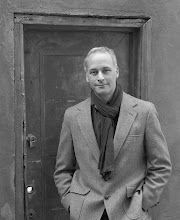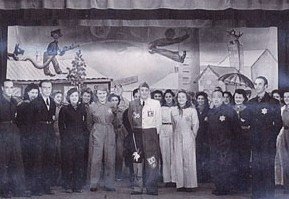“One always has the feeling here of being the ears and eyes of a piece of Jewish history…We must keep one and other in touch with everything that happens…each one contributing his own little piece of stone to the great mosaic that will take shape once the war is over.”
Etty Hillesum, a Letter from Westerbork, 24 August 1943
I first visited the tragedy of Westerbork for my MFA thesis project at the Old Globe Theatre in 1996. It seemed the perfect acting exercise. But, as I began to work, the story took on a life of its own. Westerbork grabbed me by the sleeve and led me past hellish gates. People approached me from all sides and the story began to tell itself.
I performed a version for the first NYC Fringe festival in 1998. From this production I received some press and was contacted by more survivors who had actually been in the shows at Westerbork. After I heard their stories I was inspired to expand the piece more.
In 2006, with support and urging from my colleagues in the Theatre Artists Alliance, I came back to Westerbork yet again and was awarded a staged reading at the Annex Theatre. For the reading I had many people play the parts. It was informative to have the characters actually talk back to each other and to have other actors interpret the roles. One day I would like to see a production with a full cast and orchestra.
Why keep coming back to The Westerbork Serenade again and again? Because as the World War Two generation begins to pass away we must continue to piece together the puzzle and face some vital questions: How do the events of more than sixty years ago still directly affect Jews today with regard to religion, Israel and Palestine, and how we view ourselves as a people. What is racism and why does it make ordinary human beings behave like monsters? How are we in the US today similar to the people of Nazi Germany?
Finally, as an artist, it is very compelling to me to explore what it is to perform for one’s life. What does it feel like to be forced to use one’s creative essence and artistic skill in order to literally continue to exist? It seems to me the ultimate ironic twist to the notion that art fulfills our souls. In a most jarring way, this idea brings home the madness of the Holocaust.
Subscribe to:
Post Comments (Atom)



No comments:
Post a Comment